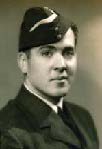Charles L. 'Chip' Collins
was enshrined in 2010
was enshrined in 2010

Chip Collins has spent his entire lifetime involved in and dedicated to aviation. He is most recognized for his development and flight-testing of early inertial navigation systems. During his 32 years as a civilian test pilot for MIT, Collins flight-tested the early MIT FEBE inertial navigation prototypes as well as the subsequent SPIRE (Space Inertial Reference Equipment) and SPIRE Jr. systems. In 1953, he was pilot-in-command of the historic first coast-to-coast, non-stop, pure inertial navigation flight. He participated in the development and fight-testing of subsequent inertial navigation systems leading to successful applications for civil and military aircraft, missile defense and space exploration. Inertial navigation, now being integrated with GPS, remains a key flight navigation system today. Collins was born in 1919 in Oldham County, Kentucky. In 1935, at age 16, he earned a private pilot license. In 1941, he entered the Royal Canadian Air Force where he trained as a fighter pilot. In 1942 he transferred to the United States Army Air Corps, where he instructed in twin engine aircraft, and progressed through B-17 and B-29 training. In 1944, he flew 35 missions over Japan as a B-29 Aircraft Commander.
Following VJ day, Collins was assigned to the Armament Laboratory at Wright Field where he graduated from the first established test pilot school and performed flight test evaluations of captured enemy aircraft. While at Wright Field, Collins met MIT professor Charles Stark Draper, later known as "the father of inertial navigation." Dr. Draper asked Collins to come to MIT to work for the Instrumentation Laboratory (later the Charles Stark Draper Laboratory). Collins oversaw construction of the MIT Flight Facility, completed in 1949. As a civilian pilot, he served as the facility's manager and senior engineering test pilot until 1979. During his tenure he participated in over 50 different research and development programs on a variety of experimental aircraft systems.
Collins has over 15,000 pilot hours in more than 60 different aircraft, including single and multi-engine reciprocating aircraft, single and multi-engine jets, and single and multi-engine helicopters. His pilot ratings include ATP, commercial, instrument, CFI, helicopter, and glider. A graduate of the USAF Air War College, Collins retired from the Air Force Reserve in 1973 as Colonel after 30 years of commissioned service. He is an Associate Fellow of the Society of Experimental Test Pilots, a former National Director of the Air Force Association, a Past President and current Advisor of the Aero Club of New England, a member of the Order of Quiet Birdmen, and a member of the Military Pilots Order of Daedalians.
Collins was the 1979 recipient of the Godfrey L. Cabot Award for outstanding contributions to the development of aviation and aerospace science. He received the National Aeronautic Association's 1996 Elder Statesman of Aviation Award.
